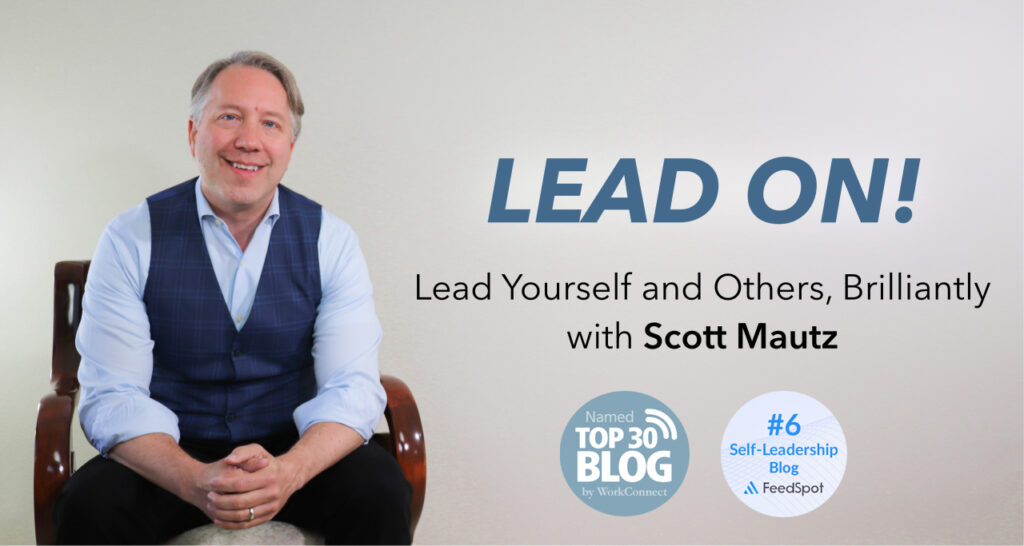
INSIGHTS (on leadership/self-leadership)
A fascinating psychology study found a connection between our body movements and the state of our certainty when making a decision. Study participants read two separate articles about getting rid of a minimum wage for adults. One article simply stated the case for abolishing it; the other listed specific pros and cons for both sides of the argument. While reading the article, participants were asked to stand on a Wii Balance Board (used to enable interactive gaming through movement) so that their side to side movement could be measured while reading one of the articles. Those reading the article with pros and cons subconsciously leaned from one side to the other more than those reading the more “fixed position” article.
In times of indecision, when we are mentally vacillating, our bodies really do reflect that internal conflict via subtle side to Wiside movement. The study participants were eventually asked to “take a stand” and state if they were for or against abolishing a minimum wage for adults, and the results showed they tended to actually stand firm when stating their decision.
Interestingly enough, the reverse held true as well. In phase two of the study, participants were engaged in a study of tai-chi movements. Those who were told to conduct more side to side movements showed more indecisiveness than those who were told to move up or down or make no movements at all.
So, we move from side to side when we are uncertain, and the action of moving from side to side makes us feel more uncertain.
Thus, the study concluded, to free yourself from indecision, take a stand – literally.
IMPERFECTIONS (a mistake many make)
I was recently in Zurich, Switzerland, when I came across this plaque (in a charming town square) marking the exact spot Winston Churchill stood and gave his famous speech about a post-war call for a united Europe. He advocated that Europe neither follow the model of communist USSR, nor the liberal United States, but that they pursue a better, third way, finding its own niche on the world stage somewhere between the two. It shaped what Europe is today.

Relatedly, in my new book, The Mentally Strong Leader, I share that mentally strong decision-makers (like Churchill) habitually explore if a better third option exists, often one that’s a blend of two options on the table, and that minimizes the trade-offs of either option. Doing so helps you avoid a phenomenon we can mistakenly fall into, known as the Pairing Paradox. Meaning, we’re drawn to having just two options to decide from; our brain is wired that way, to compare and contrast A versus B, this one to that one. It feeds our comparison instinct, and makes it easier to do so because, after all, it’s just comparing one thing to the other – we do that all the time. But there’s a downside to this. In an effort to simplify the decision-making process and choose from just two options, you can end up accepting way too many trade-offs with the option you choose.
For example, say you’re choosing between buying a home that’s close to the city where you work, but is expensive, or one that’s far more affordable, but is quite a distance from your work. You’re eager to get on with making a decision, so you choose the expensive home near the city.
But you could have allotted more time in the decision-making process up front for the potential identification of a better, third option. Had you done so, you would have discovered a lovely home for sale in the first suburb out from the city, an option that splits the difference between distance and affordability, minimizing the trade-offs of your other two options.
So, when deciding, consider a better, third way. It just might lead the way to the best outcome.
IMPLEMENTATION (one research-backed strategy, tip, or tool)
Here’s a simple, but effective tip to help you get through a period of change that you’re not looking forward to, or even fear.
Have real faith, not blind faith. (Please note I’m not referring to spiritual/religious faith here) Blind faith is when you believe things will just work out, but not of your own accord. You believe some other force will make it so, and that you don’t need to do anything. Real faith is when you understand you have a unique role in things, take responsibility accordingly, and believe that your commitment and abilities will carry you through. You’re stoic in your resolve and eager to help mold the outcome.




Leave a Reply